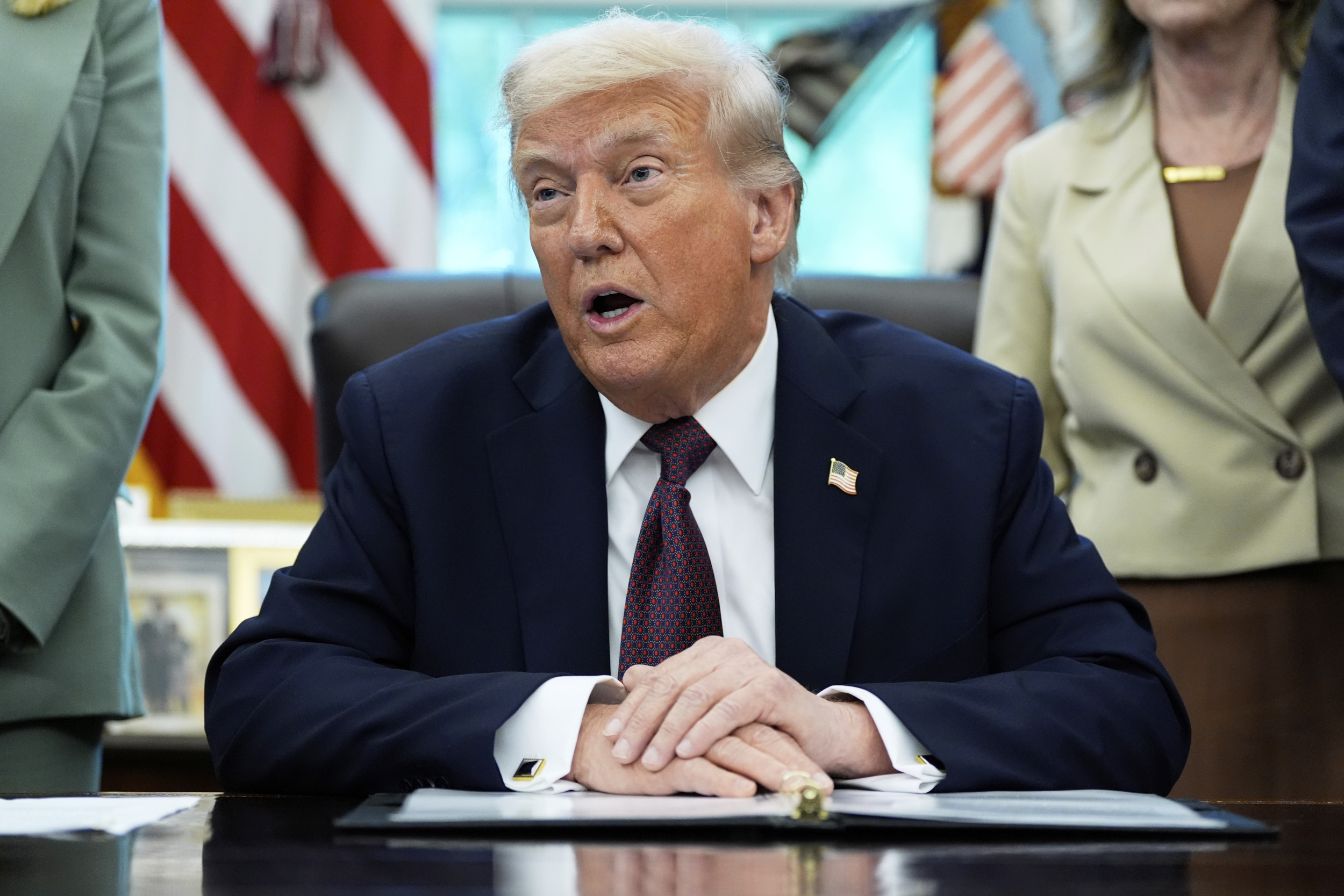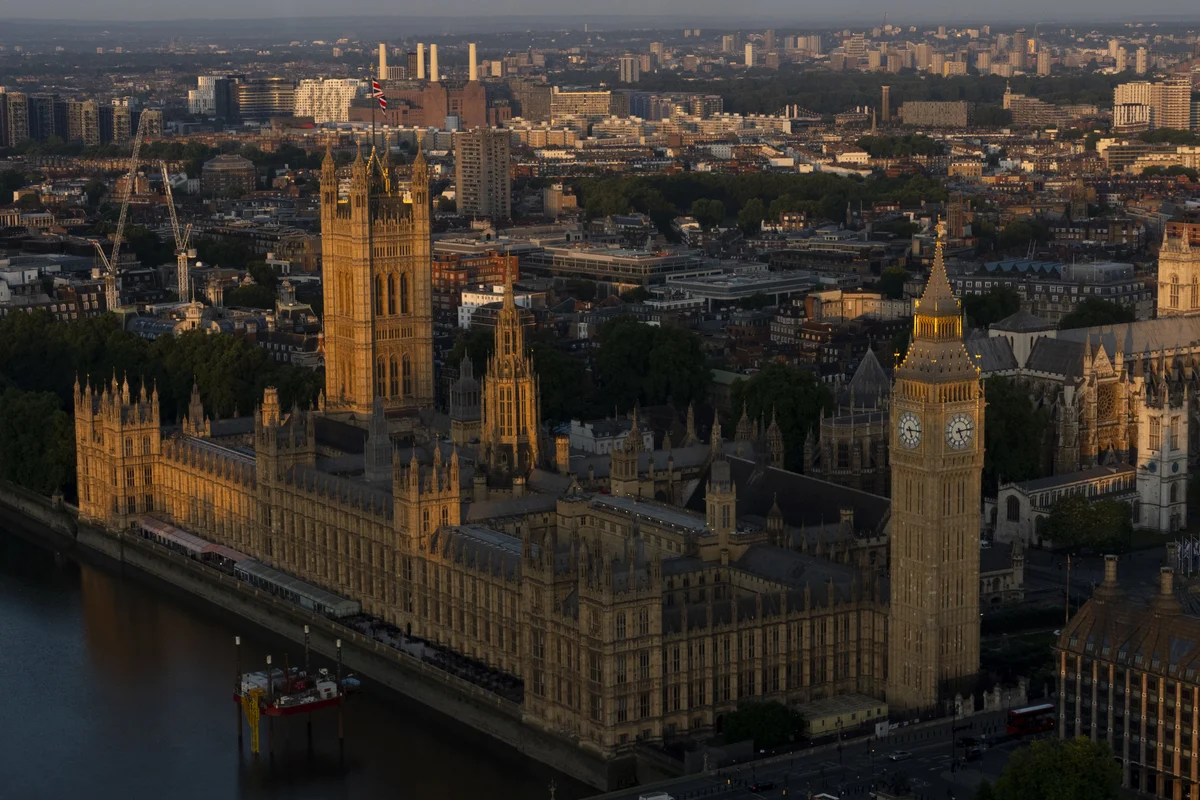
Donald Trump’s approval rating on the economy has hit an all-time low, according to a new poll.
The latest YouGov/Economist polling, shows that Trump’s approval rating on the economy has hit -22 points, with 35 percent approving and 57 percent disapproving. That is down from -17 points in the previous poll conducted last week.
At this point in Trump’s first term, his approval rating on the economy stood at around -9 points.
Why It Matters
Trump emphasized his economic plan on the campaign trail, pledging to bring down inflation faced by Americans after the COVID-19 pandemic struck in 2020.
However, economists warn that his plans, including tariffs, could lead to higher prices for U.S. consumers, and his efforts at implementing the policy caused stocks to drop.
The economy remains a top issue for most voters, and Trump’s handling of it will be on Americans’ minds heading into the 2026 midterms, as well as a handful of gubernatorial races later this year.
Democrats are hoping that growing dissatisfaction with his economic plans can carry them to victory in several key races.
What To Know
One of Trump’s key campaign promises was to to end inflation “on Day One” in office. But the newest update to the consumer price index (CPI), which measures a basket of goods and services, showed that prices were 2.9 percent higherin August compared to last year—the largest increase since January.
That is influenced by tariffs on imports, which have increased consumer prices by about 2.3 percent in the short term.
Additionally, housing costs have surged, with the income required to afford a median-priced home increasing by 70 percent since 2019, now necessitating an annual income of $114,000.
Meanwhile, the U.S. jobs market stalled over the summer, adding only 22,000 jobs in August, following a loss of 13,000 in June—the first drop since December 2020. The unemployment rate rose to 4.3 percent, its highest level since 2021, as businesses adjusted to tariff-related disruptions.
The Bureau of Labor Statistics (BLS) also revised down its job numbers from April 2024 to March 2025 by 911,000 jobs—the biggest revision on record.
Amid the economic uncertainty, the YouGov/Economist polling shows that Trump’s approval rating on inflation has also taken a hit, reaching -34 points, another all-time low. That is down from -30 last week and +6 at the beginning of his second term.
Meanwhile, over the past two months, the share of Americans who describe the economy as poor has risen from 28 percent to 39 percent. Those who say the economy is fair have dropped from 39 percent to 32 percent, while the share rating it as good has declined from 26 percent to 22 percent.
The latest Fox News/Beacon Research and Shaw poll, conducted between September 6-9 among 1,004 registered voters, showed that by a 22-point margin, more voters say the Trump administration has made the economy worse (52 percent) rather than better (30 percent).
Trump has sought to blame rising inflation on Joe Biden’s presidency.
During a White House event in March, he said the U.S. and its economy “went to hell” under his predecessor.
In the same month, during his national address to Congress, Trump said, “we inherited from the last administration an economic catastrophe and an inflation nightmare.”
But polls suggest that message no longer resonates with voters. The latest Cygnal poll, published this week, showed that more Americans blame Republicans than Democrats for rising inflation.
At the same time, Trump has seen his overall approval ratings plummet.
Newsweek’s tracker currently shows that the president’s net approval rating sits at -10 points, with 44 percent approving and 54 percent disapproving. That is down from -9 points on Tuesday and -8 points last week.
The YouGov/Economist poll also put Trump’s latest approval rating at an all-time low, with 39 percent approving and 57 percent disapproving. The president’s numbers with the pollster last week was 41 percent with a 54 percent disapproval rating.
Polls suggest that it is Trump’s record on the economy that is driving the slump.
The Fox News poll found that the economy remains the dominant issue for 37 percent of voters, outpacing all other issues.
The YouGov/Economist poll also found that inflation and prices remain the most important issue to voters.
Peter Loge, director of George Washington University’s Project on Ethics in Political Communication, told Newsweek the latest polling on the economy is “bad news for Republicans” ahead of the 2026 midterms.
“Inflation hurts presidents. A lot of voters use elections to punish people who they think are failing. Elections are ways to fire the people in charge if voters don’t like what’s going on, Loge said.
“Many people view politics like plumbing, they just want it to work. If your sink is leaking, you don’t hire three plumbers who stand around and argue about PVC piping. If your sink is leaking, you hire a plumber to fix it. If the plumber doesn’t fix it, you fire them and hire a new plumber,” he said.
“Economic news has been bad all year and is getting worse. Fairly or not, that’s bad news for Republicans because Republicans are in charge.”
What People Are Saying
Robert Reich, former labor secretary in President Bill Clinton’s administration, said on X this month: “Trump’s approval ratings are tanking. He’s blowing up the economy. He hasn’t done squat to help the working class. The [Jeffrey] Epstein scandal haunts him. He is a weak and failing president with his back against the wall. Keep up the pressure.”
President Donald Trump posted on Truth Social Tuesday: “The Republicans are going to do a Midterm Convention in order to show the great things we have done since the Presidential Election of 2024. Time and place to be determined. Stay tuned, it will be quite the Event, and very exciting! President DJT”
What Happens Next
Political strategists and pollsters say sustained sub-majority approval ratings can harm the sitting president’s party in midterm elections by motivating opposition turnout and complicating messaging for swing-district Republican candidates.
Historical patterns often show the president’s party losing ground in midterms under similar conditions.



